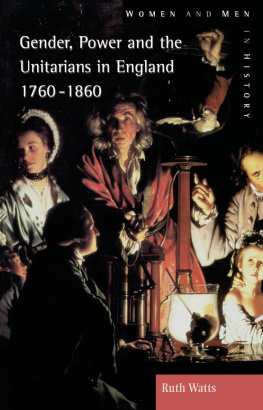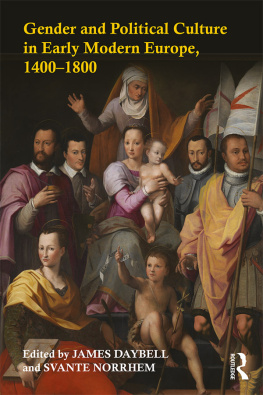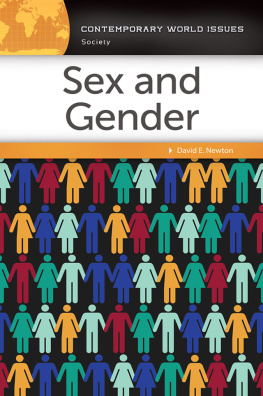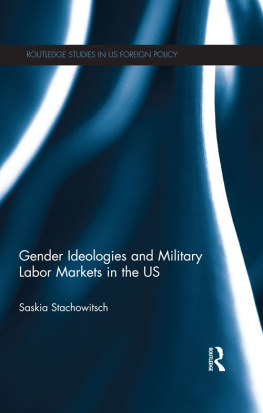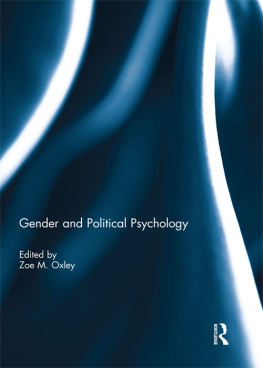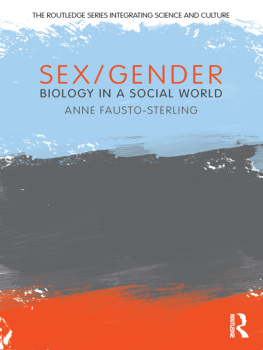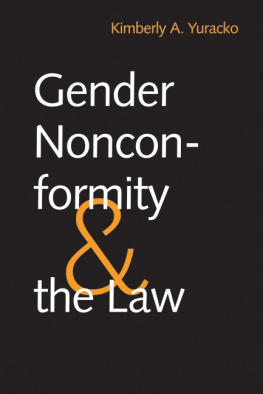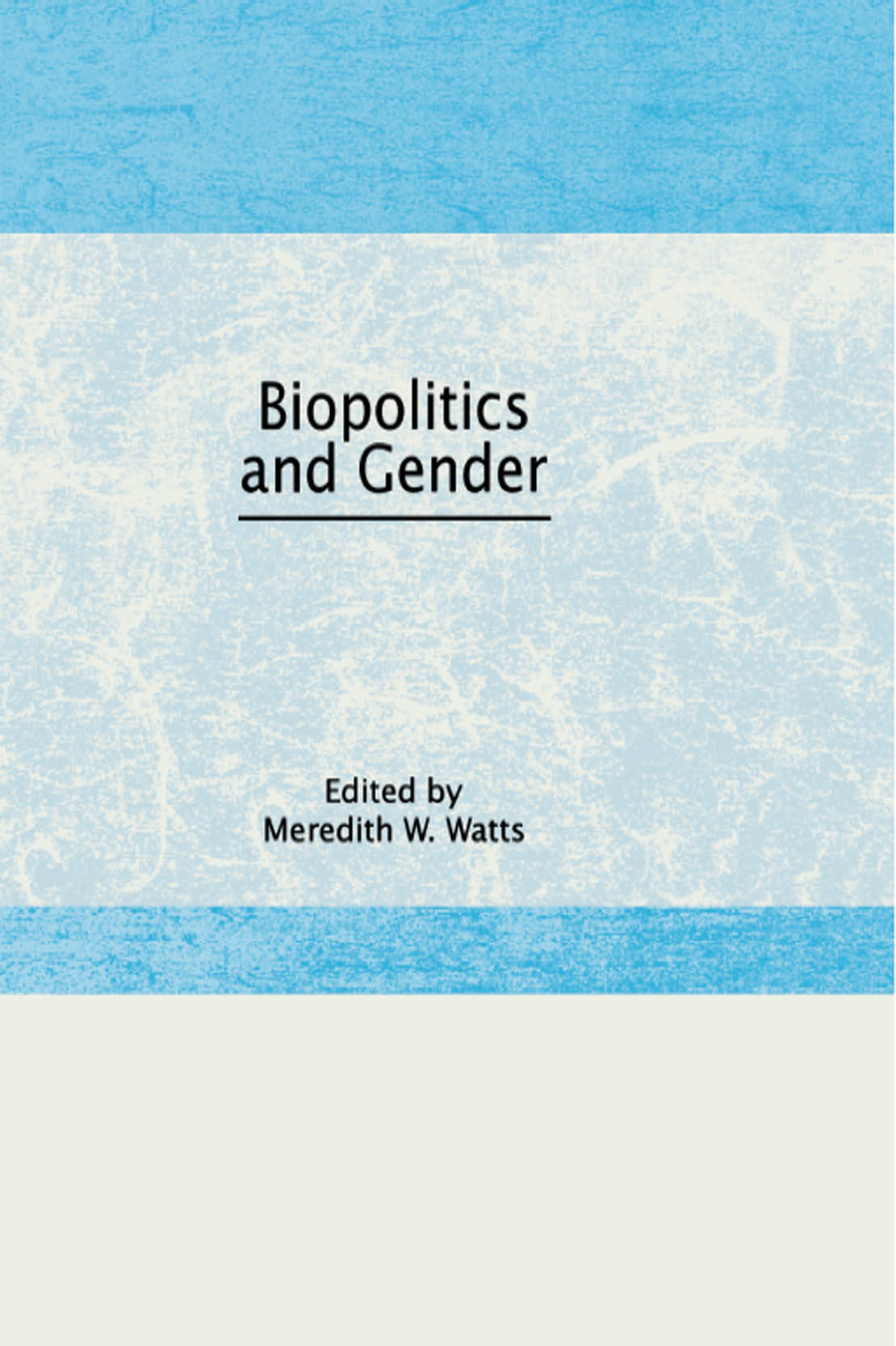Biopolitics and Gender
Biopolitics and Gender
Meredith W. Watts, Editor

First Published by
The Haworth Press, Inc., 10 Alice Street, Binghamton, NY 13904-1580
Transferred to Digital Printing 2009 by Routledge
270 Madison Ave, New York NY 10016
2 Park Square, Milton Park, Abingdon, Oxon, OX14 4RN
Biopolitics and Gender has also been published as Women & Politics, Volume 3, Numbers 2/3, Summer/Fall 1983.
Copyright 1984 by The Haworth Press, Inc. All rights reserved. Copies of articles in this publication may be reproduced noncommercially for the purpose of educational or scientific advancement. Otherwise, no part of this work may be reproduced or utilized in any form or by any means, electronic or mechanical, including photocopying, microfilm and recording, or by any information storage and retrieval system, without permission in writing from the publisher.
Library of Congress Cataloging in Publication Data
Main entry under title:
Biopolitics and gender.
Biopolitics and Gender has also been published as Women & Politics, Volume 3, Numbers 2/3, Summer/Fall 1983Verso of t.p.
Includes bibliographical references.
Contents: Biopolitics and gender / Meredith W. Watts Biology, gender, and politics / Denise L. Baer, David A. Bositis Political ideology, sociology, and the U.S. women's rights movement / Susan Ann Kay, Douglas B. Meikle [etc.]
1. Women in politicsUnited StatesAddresses, essays, lectures. 2. Women's rightsUnited StatesAddresses, essays, lectures. 3. BiopoliticsAddresses, essays, lectures. I. Watts, Meredith W. II. Women & politics.
HQ1236.5.U6B56 1983 305.42 83-18597
ISBN 0-86656-250-8
Publisher's Note
The publisher has gone to great lengths to ensure the quality of this reprint but points out that some imperfections in the original may be apparent.
Biopolitics and Gender
Women & Politics
Volume 3, Numbers 2/3
CONTENTS
EDITOR
SARAH SLAVIN, Assistant Professor, Political Science Department, State University College at Buffalo, Buffalo, New York
EDITORIAL BOARD
KIRSTEN AMUNDSEN, Professor of Political Science, California State University at Sacramento
BARBARA R. BERGMANN, Professor of Economics, University of Maryland at College Park
MELISSA BUTLER, Associate Professor of Political Science, Wabash College
ELLEN BONEPARTH, Associate Professor of Political Science, San Jose State University, San Jose, California
IRENE DIAMOND, Women's Studies Program, University of California at Los Angeles
JEAN BETHKE ELSHTAIN, Professor of Political Science, University of Massachusetts at Amherst
JO FREEMAN, Brooklyn, New York
WALTER R. GOVE, Professor of Sociology, Vanderbilt University
MARTIN GRUBERG, Professor of Political Science, University of Wisconsin at Oshkosh
LYNNE B. IGLITZIN, Associate Director of Undergraduate Studies; Lecturer in Political Science, University of Washington at Seattle
JANE S. JAQUETTE, Associate Professor of Political Science, Occidental College at Los Angeles
M. KENT JENNINGS, Professor, Political Science Department, University of California at Santa Barbara
ALBERT K. KARNIG, Associate Professor, Center for Public Affairs, Arizona State University
RITA MAE KELLY, Professor, Center for Public Affairs, Arizona State University
JEANE J. KIRKPATRICK, U.S. Ambassador to the United Nations
J. STANLEY LEMONS, Professor of History, Rhode Island University
NAOMI LYNN, Professor, Political Science Department, Kansas State University at Manhattan
SUSAN GLUCK MEZEY, Political Science Department, DePaul University
BETTY A. NESVOLD, Dean, San Diego State University
KAREN O'CONNOR, Associate Professor of Political Science, Emory University; member of the Georgia bar
JEWEL L. PRESTAGE, Professor and Chair, Political Science Department, Southern University
VIRGINIA SAPIRO, Associate Professor of Political Science, University of Wisconsin at Madison
DEBRA W. STEWART, Associate Professor of Political Science, North Carolina State University at Raleigh
KENT TEDIN, Associate Professor of Political Science, University of Houston
SUSAN J. TOLCHIN, Professor of Public Administration, The George Washington University
SUSAN WELCH, Professor and Chair, Political Science Department, University of Nebraska at Lincoln
BIBLIOGRAPHY EDITOR
KATHLEEN A. STAUDT, Assistant Professor, Political Science Department, University of Texas at El Paso
BOOK REVIEW EDITOR
SHARON L. WOLCHIK, Visiting Assistant Professor of International Affairs and Political Science, Institute for Sino-Soviet Studies, Department of Political Science, The George Washington University
EDITORIAL INTERN
JUDY HARLA, State University College at Buffalo
DATA BASES EDITOR
ROBERT DARCY, Associate Professor of Political Science, Oklahoma State University at Stillwater
Biopolitics and Gender

INTRODUCTION

Biopolitics and Gender
Meredith W. Watts
INTRODUCTION
In general, the term biopolitics denotes a relatively young interdisciplinary approach with a focus on the contemporary life sciencespsychophysiology, brain science, ethology, endocrinology, or any number of othersas sources of insight and method for the analysis of political behavior. In the standard interpretation of normal science (cf. Thomas Kuhn), the life sciences can be usefully discussed in two parts: 1) as a body of knowledge developed through the accumulation of interrelated, replicable and replicated studies which have produced empirically verified and inter-subjectively accepted findings, and 2) as the methodology employed in carrying out empirical analysis. The dichotomy between a corpus of knowledge and the methods for acquiring that knowledge is used in avoiding confusion over substantive findings on the one hand and the means (ranging from broad epistemology to specific data-gathering techniques) commonly employed within a particular field for conducting research.
It is commonly understood that one's predispositions and perceptions, among other influences, affect the manner in which research problems are defined and data are interpreted; indeed, it is difficult to maintain, particularly in the social sciences but also in the natural sciences, that substantive findings exist in an ethereal realm un-guided by human purposes and visions, and even limitations and tendentiousness. It is, however, worthwhile to bear in mind this venerable distinction between substance and method to the extent that it reflects a real diversity among those involved in biopolitics. As we see in this introductory review, and in the chapters which it precedes, the term biopolitics has been used to include, on the one hand, sociopolitical extrapolations from the substance of one or more of the life sciences and on the other hand, empirical studies which primarily borrow methods from the life sciences to examine hypotheses of more or less traditional interest to their home disciplines. In this volume, the papers by Kay and Meikle, Schubert, and Masters tend more toward the former category, while studies by Jones, and Jaros and White tend toward the second. The Baer paper offers a critique that deals with both areas, but standing in sharpest relief is a concern that social scientists make appropriate use of findings in such areas as endocrinology and that they be aware of limitations and conceptual difficulties involved in borrowing from those areas.


